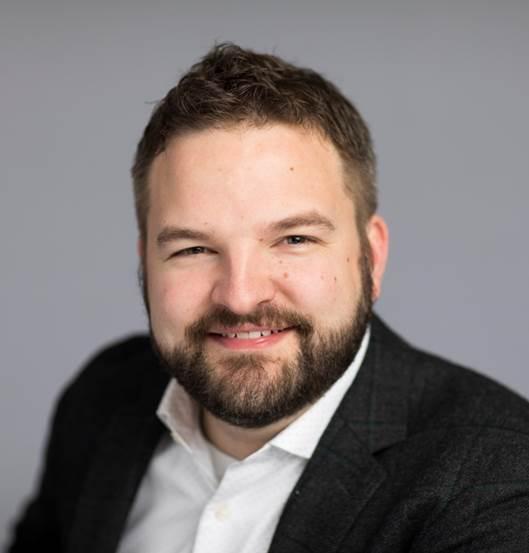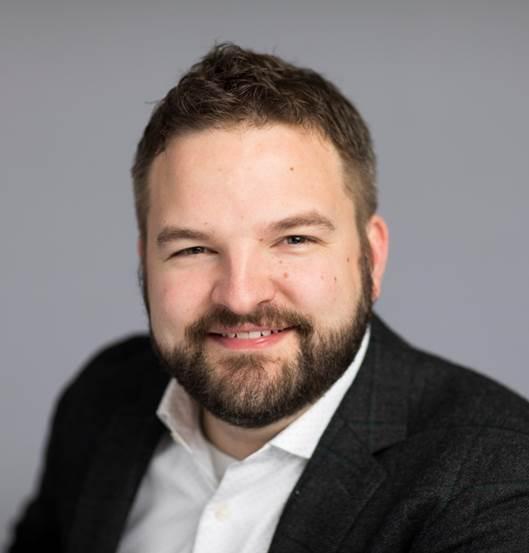
Credit: University of Pittsburgh School of Medicine
Throughout the past 15 years, Alliance for Cancer Gene Therapy (ACGT), the nation's only nonprofit dedicated exclusively to cell and gene therapies for cancer, has been an initial funder for early cancer cell, gene and immunotherapy research in North America. ACGT has provided nearly $27 million to cancer research and treatment. This year, ACGT is proud to announce two new scientists that are recipients of the ACGT Young Investigator Grants: Marco Gallo, PhD, of the University of Calgary and Greg Delgoffe, PhD, of the University of Pittsburgh. ACGT is supporting Dr. Gallo's research into the cellular anomalies in glioblastoma brain cancer and Dr. Delgoffe's research into metabolically reprogramming tumor-specific T cells for treating solid tumors including melanoma.
Dr. Marco Gallo is an assistant professor of Physiology & Pharmacology and Biochemistry & Molecular Biology at the University of Calgary, Cummings School of Medicine in Alberta, Canada. Dr. Gallo's research focuses on the cellular anomalies in brain tumors, with a special emphasis on glioblastoma, the most common malignant brain tumor in adults with a survival rate of only 13 months. One of the reasons treatments are often ineffective is the Machiavellian cellular structure within the tumor. A small population of cancer cells, called cancer stem cells, successfully evade traditional therapies. Dr.Gallo's team has learned that cancer stem cells have regions of highly compacted DNA caused by low levels of a specific protein. His research is designed to alter the cancer-specific DNA architecture by introducing an engineered protein, which can be directed to any site in the human genome and will be used to unravel the tumor. Pre-clinical studies will permit an analysis of both immediate efficacy and lasting affect. Dr. Gallo earned a PhD in medical genetics at the University of British Columbia and a BS in molecular biology and biochemistry at Simon Fraser University, both in Canada. He has published six primary authorship papers since beginning his post-doctoral fellowship in 2010.
"In essence, our technology will enable us to perform a new kind of gene therapy, by directly targeting DNA structure, which is the ultimate determinant of cancer stem cell behavior," said Dr. Marco Gallo, ACGT Young Investigator.
Dr. Greg Delgoffe is an assistant professor of Immunology at the University of Pittsburgh School of Medicine and member of the Tumor Microenvironment Center at the University of Pittsburgh Cancer Institute (UPCI), partner with UPMC CancerCenter. Recent clinical successes have revealed that the immune system can be successfully harnessed to fight cancer. Various strategies are utilized, including enhancing a patient's 'natural' response to cancer as well as 'redirecting' a patient's immune cells, T cells, to the tumor using genetic engineering. T cell therapies have shown remarkable progress in the treatment of hematological malignancies but have yet to show dramatic success in solid tumors. Dr. Delgoffe's research focuses on how T cell metabolism might be bolstered through gene therapy to promote activity in the tumor microenvironment. Dr. Delgoffe's lab, building on basic observations that T cells are exquisitely sensitive to metabolic perturbations in their surroundings, has shown that in solid tumors, cancer cells evade immune responses in part by depriving the T cell of the ability to generate energy, and depleting the local environment of nutrients. Dr. Delgoffe's team will utilize genetic engineering to metabolically 'reprogram' tumor-specific T cells to fight cancer for an extended period of time. The goal is to generate super-soldier T cells that can be redirected to the tumor site, while bolstered metabolically to support long-term and durable responses. His research will explore the use of genetically modified T cells as a monotherapy against anti-PD1-resistant melanoma. His next goal will be to combine adoptive cell therapy with PD-1 blockade to learn if this combination is more effective. Dr. Delgoffe earned a PhD at Johns Hopkins University School of Medicine and a BS in Biomedical Sciences at Western Michigan University and has published several papers in the field of immune metabolism and tumor immunology. In 2015 he was selected as a Kimmel Scholar by the Sidney Kimmel Foundation for Cancer Research.
"Our work has the potential to transform the way we reprogram therapeutic T cells, such that they have increased metabolic fitness and longevity to promoting durable and effective regression in cancer patients," noted Dr. Greg Delgoffe, ACGT Young Investigator.
ACGT has a 15-year history of funding innovative cancer research. Drs. Gallo and Delgoffe represent ACGT's 51st and 52nd grant recipients, including 16 clinical translation grants. This is particularly exciting given ACGT's commitment to contributing 100 percent of donations directly to research. Additional breakthroughs carried out by ACGT grantees, like Dr. Carl June at the University of Pennsylvania and his work successfully treating leukemia through cancer gene therapy, have been touted in recent national documentaries aired on PBS and HBO. These trials are showing a 90 percent remission rate of children and adults with acute lymphoblastic leukemia after participating in a personalized cellular therapy trial. ACGT-funded work is also attracting increasing attention from the pharmaceutical industry, which is swiftly discovering the potential of cell and gene therapies.
"ACGT has become a leader in funding early-stage breakthrough cancer cell, gene and immunotherapy research" said John Walter, CEO and president of ACGT. "ACGT's Young Investigator grants are an opportunity for talented young scientists to receive funding for research that might be overlooked by the NIH or other backers because it is deemed 'too early.' We at ACGT see this research in another light — by backing Young Investigators, we can truly make an impact on how cancer is treated and hopefully play a part in making it a manageable disease."
###
About Alliance for Cancer Gene Therapy (ACGT)
Established in 2001, ACGT is the nation's only non-profit dedicated exclusively to cell and gene therapy treatments for all types of cancer. One hundred percent of contributions go directly to research. ACGT has funded 52 grants in the U.S. and Canada since its founding in 2001 by Barbara Netter and her late husband Edward, to conduct and accelerate critically needed innovative research. Since its inception, ACGT has awarded 36 grants to Young Investigators and 16 grants to Clinical Investigators, totaling nearly $27 million in funding. ACGT is located at 96 Cummings Point Road, Stamford, Connecticut 06902; 203-358-5055. To learn more, visit acgtfoundation.org or join the ACGT community on Facebook, Twitter and YouTube at @acgtfoundation.
Media Contact
Jenifer Howard
[email protected]
203-273-4246
Homepage





